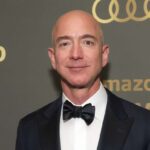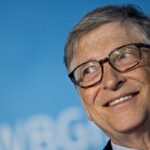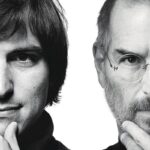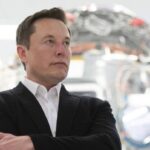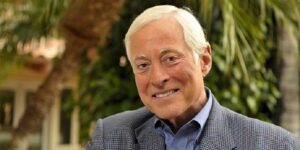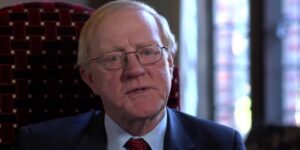Paul Allen biografie en quotes
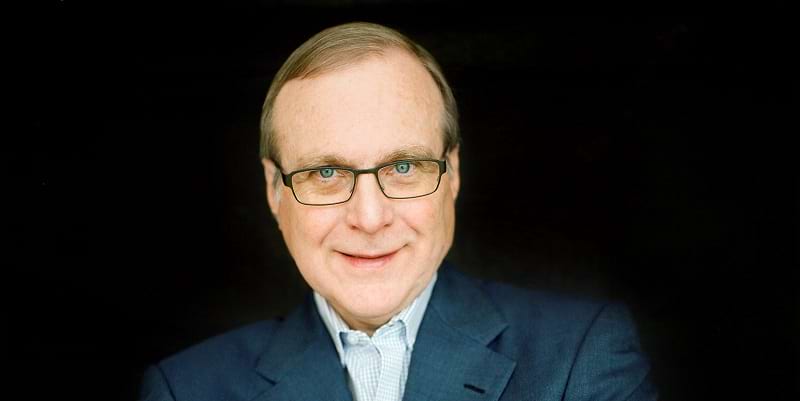
Paul Allen (Paul Gardner Allen: 21 januari 1953 – 15 oktober 2018) was een Amerikaanse zakenmagnaat, filantroop, investeerder, programmeur en onderzoeker. Paul Allen was een jeugdvriend van Bill Gates, met wie hij Microsoft Corporation oprichtte in 1975. Samen brachten ze met het bedrijf een ware computerrevolutie op gang.
Microsoft groeide uit tot een van de grootste bedrijven in computersoftware. In zijn sterfjaar werd het vermogen van Paul Allen geschat op ruim 20 miljard dollar, goed voor plek 44 op de lijst met rijkste personen ter wereld.
Paul Allen biografie
Paul Allen werd geboren in Seattle, Washington. Zijn vader Kenneth Sam Allen was een bibliothecaris en zijn moeder Edna Faye was docent. Vanaf 1965 tot 1971 ging naar hij de Lakeside School, een private school.
Op deze school raakte Paul Allen bevriend met Bill Gates. Beide vrienden raakte zeer enthousiast over computers. Ze gebruikten de faciliteiten op school om hun vaardigheden op het gebied van programmeren te ontwikkelen. Ook mochten ze het laboratorium van het Computer Science Departement van de Universiteit van Washington gebruiken, maar het tweetal werd later de toegang ontzegt vanwege misbruik van hun privileges.
Daarop sloten de vrienden Allen en Bill Gates zich aan bij klasgenoot Ric Weiland en richtten de Lakeside Programming Club op. Hier begonnen ze te werken aan bugs in de software van Computer Center Corporation. Vervolgens vormden ze Traf-O-Data om verkeerstellers te maken.
Het begin van Microsoft
Paul Allen was een uitstekende leerling en behaalde een perfecte SAT-score van 1600. Hij startte met een opleiding aan de Washington State University, maar stopte na 2 jaar om te gaan werken voor Honeywell in Boston als programmeur. Hij overtuigde zijn vriend Bill Gates ervan om te stoppen met Harvard en om samen Microsoft op te richten.
Het begin van een nieuw tijdperk was daarmee een feit. In 1975 werd Microsoft opgericht in Albuquerque, New Mexico. De eerste medewerker van het bedrijf was Ric Weiland, de schoolvriend van de twee. Allen bedacht de naam Microsoft, een combinatie van microcomputer en software.
In 1980 deed het bedrijf een toezegging van een schijfbesturingssysteem aan het bedrijf IBM, bedoeld voor hun originele IBM-pc. Hoewel ze nog niks ontwikkeld hadden op dat moment, leidde Allen Microsoft naar een deal om het QDOS-systeem te kopen.
Het resultaat van deze deal was een contract voor de levering van de DOS die de computers van IBM draaiende hield. Dit was de eerste stap naar het succes en de grote rijkdom van de twee oprichters van Microsoft.
Relatie met Bill Gates
De relatie tussen Paul Allen en Bill Gates verslechterde toen ze over kleine dingen ruzie begonnen te maken. Allen verliet het bedrijf in 1982, net nadat hij de diagnose Hodgkin-lymfoom had gekregen. Hij bleef aan als voorzitter van de raad van bestuur. Gates deed daarna enkele pogingen om zijn aandeel in Microsoft te vergroten, voornamelijk omdat hij meer werk verzette in het bedrijf dan Allen.
De relatie tussen Paul Allen en Bill Gates herstelde in de jaren daarna en het tweetal bleef goede vrienden voor de rest van het leven van Allen.
In het jaar 2000 nam Allen ontslag, maar bleef aan als senior adviseur. In 2014 bezat hij nog voor ruim 100 miljoen dollar aan aandelen van Microsoft.
Rond de eeuwwisseling startte Paul Allen het Experience Music Project op, evenals het Insitute for Brain Science, een faculteit voor hersenonderzoek. In 2004 richtte hij samen met Duncan Patton het Allen Science Fiction Museum en de Hall of Fame op. Ook financierde hij SpaceShipOne, de eerste civiele onderneming in de ruimte.
Hij werd daarnaast vanaf 2007 mede-eigenaar van Major League Soccer-team de Seattle Sounders. Ook was hij eigenaar van de NBA teams Seattle Seahawks en de Portland Trail Blazers, waardoor hij nog meer bekendheid kreeg onder sportfans in de pacific northwest.
Rechtszaken
Paul Allen klaagde rond 2010 een groot aantal technologiebedrijven aan, waaronder Apple, Google, Netflix, Yahoo en Facebook. Hij deed dit wegens het schenden van patenten die hij meer dan tien jaar eerder had gefinancierd. De rechtszaak werd afgewezen door de federale rechtbank en ook het hoger beroep werd daarop afgewezen door het hooggerechtshof.
Na deze periode voerde Allen nog enkele projecten uit, waaronder de lancering van het Allen Institute for Artificial Intelligence in 2013. Hij was ook betrokken bij diepzee-onderzoeken en leidde verschillende onderzoeken naar scheepswrakken van enkele schepen uit de Tweede Wereldoorlog.
De meest bekende hiervan was de USS Indianapolis in 2017 en de USS Lexington in 2018. In 2011 publiceerde Allen de memoires Idea Man, een beschrijving van de opkomst van Microsoft en zijn relatie met Bill Gates.
Filantropische activiteiten
In 1986 richtte Paul Allen samen met zijn zus Jody Allen Vulcan Inc. op, een bedrijf waarmee het tweetal zakelijke en filantropische activiteiten beheerde. Ook de Paul G. Allen Family Foundation werd opgericht in samenwerking met zijn zus.
Tijdens zijn leven gaf Allen meer dan 2 miljard dollar uit aan investeringen in de wetenschap, technologie en onderwijs. Ook had hij een voorliefde voor organisaties die zich inzetten voor natuurbehoud en kunst. Hij richtte tevens gemeenschapsinstellingen zonder winstoogmerk op, zoals het Museum of Pop Culture.
Sinds de oprichting van de Paul G. Allen Family Foundation heeft de stichting meer dan 500 miljoen dollar geschonken aan meer dan 1500 non-profitorganisaties. In 2010 tekende Allen The Giving Pledge, een initiatief waarvan de ondertekenaars beloven ten minste de helft van hun vermogen weg te geven aan filantropische doelen.
Hij kreeg enkele onderscheidingen voor zijn filantropische activiteiten, waaronder de Andrew Carnegie Medal of Philanthropy en Inside Philanthropy’s Philanthropist of the Year.
Allen speelde ook een belangrijke rol in de aanleg van microgrids. Dit zijn kleinschalige elektriciteitsnetten die onafhankelijk kunnen opereren. Dat deed hij onder meer in Kenia. Het project zorgde ervoor dat vele inwoners en bedrijven van het land gebruik konden maken van herbruikbare energie. Voor dit doeleinde richtte hij ook Off Grid Electric op, en investeerde hij in Mawingu Networks.
Persoonlijke leven van Paul Allen
Paul Allen werd gezien als een teruggetrokken en bescheiden persoon. Hoewel hij een gezin had, is hij nooit getrouwd geweest en heeft hij geen kinderen gekregen. De huwelijksplannen met zijn eerste vriendin strandden, omdat hij vond dat hij te jong was om te trouwen.
In de jaren negentig kocht hij het landgoed van Rock Hudson in Los Angeles en voegde hij een studio toe aan het pand. Het huis werd na zijn dood te koop gezet voor 56 miljoen dollar.
Bekend is dat Paul Allen een groot liefhebber was van muziek. Hij ontving zijn eerste elektrische gitaar toen hij zestien jaar oud was, en werd geïnspireerd door de muziek van Jimi Hendrix.
Ook was Allen een zeilliefhebber. Zijn jacht, Octopus, een 126 meter lang jacht, werd gelanceerd in 2013. Het jacht was onder meer uitgerust met twee helikopters, een onderzeeër, een zwembad, een muziekstudio en een basketbalveld. Het schip stond bekend om de jaarlijkse feesten die erop georganiseerd werden door Allen. Tijdens die feesten werden optredens verzorgd van onder meer Usher en Dave Stewart. Het jacht werd ook gebruikt tijdens de zoektocht naar een vermiste Amerikaanse piloot en twee officieren, waarvan het vliegtuig verdween voor de kust van Palau. Na de dood van Allen werd het schip verkocht voor 325 miljoen dollar.
Paul Allen stierf op 15 oktober 2018, op 65-jarige leeftijd, als gevolg van septische shock gerelateerd aan kanker.
Paul Allen quotes
- “Any crusade requires optimism and the ambition to aim high.”
- “As a species, we’ve always been discoverers and adventurers, and space and the deep ocean are some of the last frontiers.”
- “Continuity is important in sports.”
- “Facing your own mortality forces you to re-evaluate your priorities.”
- “For the most part, the best opportunities now lie where your competitors have yet to establish themselves, not where they’re already entrenched. Microsoft is struggling to adapt to that new reality.”
- “From my youth, I’d never stopped thinking in the future tense.”
- “Here’s what the death knell for the personal computer will sound like: Mainly I use my phone/paid, but I still use my PC to write long e-mails and documents. Most people aren’t there yet, but that’s where we’re headed.”
- “History shows that you ignore emerging platforms at your peril, because one of them might make you irrelevant.”
- “Human beings are fragile things, and for the period of time it takes to get them to Mars and back, you have dangerous radiation from the sun and the galaxy. We have to think about issues like that.”
- “I believe in the power of shared data and technology to help build a better future.”
- “I choose optimism. I hope to be a catalyst not only by providing financial resources but also by fostering a sense of possibility: encouraging top experts to collaborate across disciplines, challenge conventional thinking, and figure out ways to overcome some of the world’s hardest problems.”
- “I enjoy creating new ideas, working on new creative projects.”
- “I have to admit, between the Seahawks games and the Blazer games and playoffs games, we’re talking about close to 100 games a year, so I don’t really follow other sports a lot.”
- “I remember having pizza at Shakey’s in Vancouver, Washington in 1973 and talking about the fact that eventually, everyone is going to be online and have access to newspapers and stuff, and wouldn’t people be willing to pay for information on a computer terminal.”
- “If you have the chance to realize some of these dreams you had as a kid, and you have the opportunity, why not pursue that?”
- “If you think about making a difference in the community, my family has always had a strong interest in the arts. I’m always interested in finding ways to innovate… It’s a blend; it’s not a point focus.”
- “I’m a very private person that prefers a low profile.”
- “In a company where tech decisions were still ultra-centralized, the repercussions of a distracted CEO had to be damaging.”
- “In global warming, I think everyone is scratching their heads – are there technological things that can be brought to bear that can make a difference?”
- “In my experience, each failure contains the seeds of your next success–if you are willing to learn from it.”
- “In my own work, I’ve tried to anticipate what’s coming over the horizon, to hasten its arrival, and to apply it to people’s lives in a meaningful way.”
- “In technology, most things fail. Most companies fail.”
- “In the first eight or so years at Microsoft, we were always chained to our terminals, and after I got sick the first time, I decided that I was going to be more adventurous and explore more of the world.”
- “Moore’s Law-based technology is so much easier than neuroscience. The brain works in such a different way from the way a computer does.”
- “My high school in Seattle, Lakeside, seemed conservative on the surface, but it was educationally progressive.”
- “Others might have found us eccentric, but I didn’t care. I had discovered my calling. I was a programmer.”
- “Our net worth is ultimately defined not by dollars but rather by how well we serve others.”
- “Part of life has to be about enjoying life and having different experiences, especially if you’re with friends and you’re on an adventure on a boat or a submarine – it’s a lot of fun.”
- “Recording studios are interesting; a lot of people say – and I agree – that you should have a lot of wood in a recording studio. It gets a kind of a sweeter sound.”
- “Some people are great at the pure mathematical things – like Bill Gates, he’s great at math things. He loves to do puzzles. Me, I like to look at an overall landscape and try to figure out, how do you solve a problem?”
- “Some people are motivated by a need for recognition, some by money, and some by a broad social goal. I start from a different place: from the love of ideas and the urge to put them into motion and see where they might lead.”
- “Some people can vent their anger, take a breath, and let it go, but I wasn’t one of them.”
- “Technology is notorious for engrossing people so much that they don’t always focus on balance and enjoy life at the same time.”
- “The best museums and museum exhibits about science or technology give you the feeling that, hey, this is interesting, but maybe I could do something here, too.”
- “The biggest yacht that I have accommodates a submarine.”
- “The brain has this amazing level of almost fractal complexity to it. When you start looking at any part of it in detail, you realize that it’s much more complex than you thought.”
- “The brain is the most complex, challenging scientific puzzle we have ever tried to decode.”
- “The possible is constantly being redefined, and I care deeply about helping humanity move forward.”
- “The promise of artificial intelligence and computer science generally vastly outweighs the impact it could have on some jobs in the same way that, while the invention of the airplane negatively affected the railroad industry, it opened a much wider door to human progress.”
- “The star panelist was Ted Nelson, the wild-eyed author of the underground sensation Computer Lib. (Nelson also co-invented hypertext, by which words in one article can link to a related page, a pervasive aspect of today’s Web.) He summed up his wild philosophy in four maxims: “Most people are fools, most authority is malignant, God does not exist, and everything is wrong.”
- “The thing you realize when you get into studying neuroscience, even a little bit, is that everything is connected to everything else. So it’s as if the brain is trying to use everything at its disposal – what it is seeing, what it is hearing, what is the temperature, past experience.”
- “There are relatively few ideas that you can do just by yourself.”
- “There are so many intricacies to our brain that won’t be understood unless we start to look at the system as a whole. All these different details don’t operate in isolation.”
- “There’s going to be reversals. You have to be ready, to be philosophical about that.”
- “There’s no enjoyment to losing money.”
- “To make real progress in A.I., we have to overcome the big challenges in the area of common sense.”
- “We’ve had some tough times, but we’ve hung in there.”
- “What should exist? To me, that’s the most exciting question imaginable. What do we need that we don’t have? How can we realize our potential?”
- “What we did was unprecedented, but what is less well understood is that we had no choice.”
- “When it comes to helping out, I don’t believe in doing it for the media attention. My goal is to support the organizations that need help.”
- “You look at things you enjoy in your life, but much more important is what you can do to make the world a better place.”
- “You want someone who will challenge you back; sometimes, that’s the way the best decisions get made.”
- “You’ve got to enjoy time with your family and friends, and if you’re involved in sports franchises, those peak moments in playoff games. You have to enjoy life.”
Bekende boeken, artikelen en publicaties
- 2012. Idea man: A memoir by the cofounder of Microsoft. Penguin.
Citatie voor dit artikel:
Janse, B. (2023). Paul Allen. Retrieved [insert date] from Toolshero: https://www.toolshero.nl/bekende-auteurs/paul-allen/
Gepubliceerd op: 31/01/2023 | Laatste update: 28/03/2023
Wilt u linken naar dit artikel, dat kan!
<a href=”https://www.toolshero.nl/bekende-auteurs/paul-allen/”>Toolshero: Paul Allen</a>



